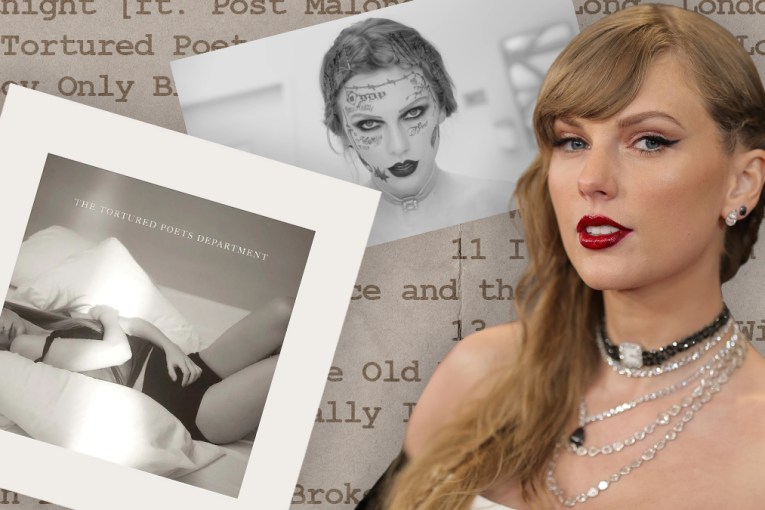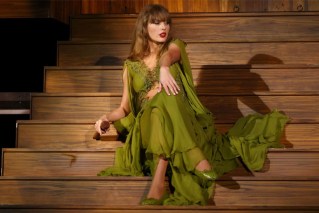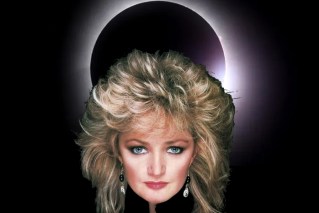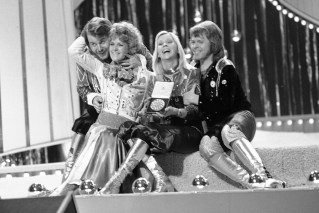Britpop 20 years on: How it survived grunge

Brett Anderson's band Suede were the original Britpop band. Photo: AAP
We’ve had 20 years to dissect Kurt Cobain’s musical legacy. Arising from the Seattle grunge movement, his group Nirvana became the poster band for a scene that fused heavy metal and noisy punk to vent the angst and disaffection characterising Generation X. (Just think of the Ethan Hawke character from Reality Bites.) With Nirvana’s Nevermind, grunge was catapulted from the fringes to the mainstream. By the time 1993’s followup In Utero arrived, the worldwide charts were full of untidy looking blokes groaning over distorted guitars. But not for long.
On the other side of the Atlantic, a very different musical movement was rising up against the earnest grubbiness of grunge. While many are this month commemorating Cobain’s death, the BBC are celebrating a less-likely element of his legacy — Britpop.

Jarvis Cocker, lead singer of iconic Britpop band Pulp. Photo: AAP
“Britpop was officially sanctioned when Kurt Cobain died,” Luke Haines recently wrote for Q magazine. “No one wanted to think about rock stars blowing their brains out.”
Haines should know. His band The Auteurs was one of a handful picked by the 1993 issue of Select magazine in which “Britpop” was first identified. That memorable issue saw Suede’s Brett Anderson posing before a union jack and behind the defiant cover slug: Yanks Go Home! The piece within was even more provocative. Titled Who Do You Think You Are Kidding, Mr Cobain?, Stuart Maconie’s article was a war cry against an American cultural invasion, decrying dull “plaid” in favour of “crimplene, glamour, wit and irony”.
Suede embodied these qualities. Like grunge, theirs was music for a disenfranchised, alienated youth, but their take was more celebration than commiseration. Informed equally by Bowie, The Smiths and T-Rex, the group crafted an edgy glamour from op-shop clothing and sang romantic pop songs about council flats, drug-taking and bad sex.
There is, perhaps, something peculiarly British in this glamorisation of the ordinary. Just as there is something British in longing for an imagined, glorious past. Bands like Suede, Blur and Oasis were as blatantly derivative as they were inventive. Oasis lead singer Liam Gallagher described his vocal style as Lennon meets Johnny Rotten, while their songwriting openly paid homage to the Beatles. In reinventing themselves as a Britpop group, Blur borrowed heavily from the likes of the Small Faces, the Kinks, Madness and, less charitably, Chas & Dave.

Brett Anderson’s band Suede were the original Britpop band. Photo: AAP
“Suede started a movement that dictated the cultural direction of a whole decade,” Anderson told Mojo in 2009. “I was writing about my life as a UK resident, about poverty and isolation, and that became the Britpop footprint, which was then distorted into a beery cartoon.”
Sure enough, Suede soon found themselves left behind. Their 1994 LP Dog Man Star was a gothic, sprawling masterpiece radically out of step with a movement they’d started.
“Britpop was made by bands who were part of the audience, and they talked about the things that audiences were interested in,” journalist Steve Lamacq told this week’s edition of BBC Radio 4’s Today program. Whereas Anderson has said he saw Suede as a “nation”, giving “community to people who find it hard to fit in”, bands such as Blur broadened their audience by appealing to the everyman.
While many are this month commemorating Cobain’s death, the BBC are celebrating a less-likely element of his legacy — Britpop.
It took a remarkable single from Pulp to bridge the gap between the mainstream “geezers” and the forgotten outsiders. Common People, at once mocking the glamorisation of poverty and, well, glamorising it, remains the definitive Britpop track. The sound has a retro vibe, the wit is deliciously pointed and the whole thing is unabashed fun.
As had happened with grunge, the movement’s downfall came with its peak. By 1997, the outsiders were so much a part of the establishment that Oasis were invited to drink at Downing Street, in celebration of Tony Blair’s election. The charts were clogged with bland copyists. The blunt sexuality of female fronted bands such as Elastica and Sleeper had morphed into the titillating and frivolous “Girl Power” of the Spice Girls. Within a year, Britpop was over.
Survivors such as Blur, Suede and Pulp struggled to reinvent themselves as anything but Britpop. In promoting their self-titled 1997 album, Blur’s Damon Albarn was keen to stress the record was more influenced by American bands than anything homegrown.
“We’re through [Britpop] and we’re onto something else now, but I’m waiting to see everyone else get through it,” Albarn told the NME.
Few bands did get through it. Britpop soon became a dirty word. But then, like “hipster” now, the term had always felt vaguely pejorative, usually applied to bands you didn’t like.
“We fought against the Britpop label,” Pulp’s Candida Doyle told Mojo in 2009. “I thought… there was no way we should be grouped in with these other bands.”
Two decades on, Britain is still waiting for its next musical movement. While there have been short-lived genre explosions, there has been none that has encouraged a similar sense of community.
“The only thing I can say about it is Britpop, whether you like it or not, and generally I don’t like it, was a coherent movement and I don’t think there’s been a coherent defined movement for quite a while now,” Brett Anderson told the Guardian in 2011.
Little wonder, then, that Britpop is back in fashion. Aside from the current celebrations, recent years have seen new releases and tours from Blur, Pulp and Suede.
And what of grunge? New, post-grunge bands such as Bush paved the way for the sort of throaty radio-friendly rock perpetrated by the Goo Goo Dolls and Nickelback. Thanks, grunge. While Nevermind is rightly remembered as the movement’s pinnacle, some of us are happier remembering its accidental legacy across the Atlantic.
Britpop vs grunge: A Top 5 Showdown
1. Suede — The Drowners
Suede’s first single laid the template for much of what was to come. Jangly guitar pop, a heightened Cockney accent and a potent whiff of alternate sexuality.
2. Blur — Parklife
Suede’s success spurred the competitive Albarn to make a lunge for the mainstream with Parklife: a novelty-flavoured song for geezers and cheeky chappies. Blame this track for most of the cod-Cockney bands that came to define Britpop.
3. Oasis — Live Forever
Oasis’s Definitely Maybe is classic rock with a dangerous edge that proved short-lived. Lead single ‘Supersonic’ might have more energy, but there’s a rough and ready romance here that remains irresistible.
4. Pulp — Common People
The definitive Britpop track. Pulp went on to record the similarly definitive Britpop hangover record, This Is Hardcore, but they were never better than this.
5. Sleeper — What Do I Do Now?
Britpop fashion icon Louise Wener may have inspired a thousand double-dyed hairdos, but she was also a keen lyricist. This is a pithy, heartfelt sketch of love gone wrong for no good reason. “Tore up all your photos, didn’t feel too clever,” Wener sings. “Spent the whole of Sunday sticking you together.” Elvis Costello does a stunning version.
Grunge
1. Nirvana — Where Did You Sleep Last Night?
That’s right, you thought we’d start with that other song. But this cover of a Leadbelly standard, from Nirvana’s Unplugged at MTV session is ragged and heartbreaking.
2. Pearl Jam — Jeremy
“Jeremy spoke in class today.” We’re never quite sure what Jeremy says, but this remains the sort of portrait of alienation and simmering anger that became a grunge speciality.
3. Soundgarden — Black Hole Sun
Likewise, this Soundgarden track is textbook inner pain and social isolation. We estimate the word “black” is used at least 27 times. Maybe it inspired this? Still, great chorus.
4. Stone Temple Pilots — Plush
Silverchair might have arrived looking like a Nirvana tribute band, but they owed their sound to the Stone Temple Pilots, whose career peaked with this growly, if melodic, single.
5. Nirvana — Smells Like Teen Spirit
OK, so it’s still an incredible song. Scratchy rhythm guitar! Drums! Noise! Angst! Indecipherable lyrics! Also, it gave us “Weird Al” Yankovic’s best work in a decade.








